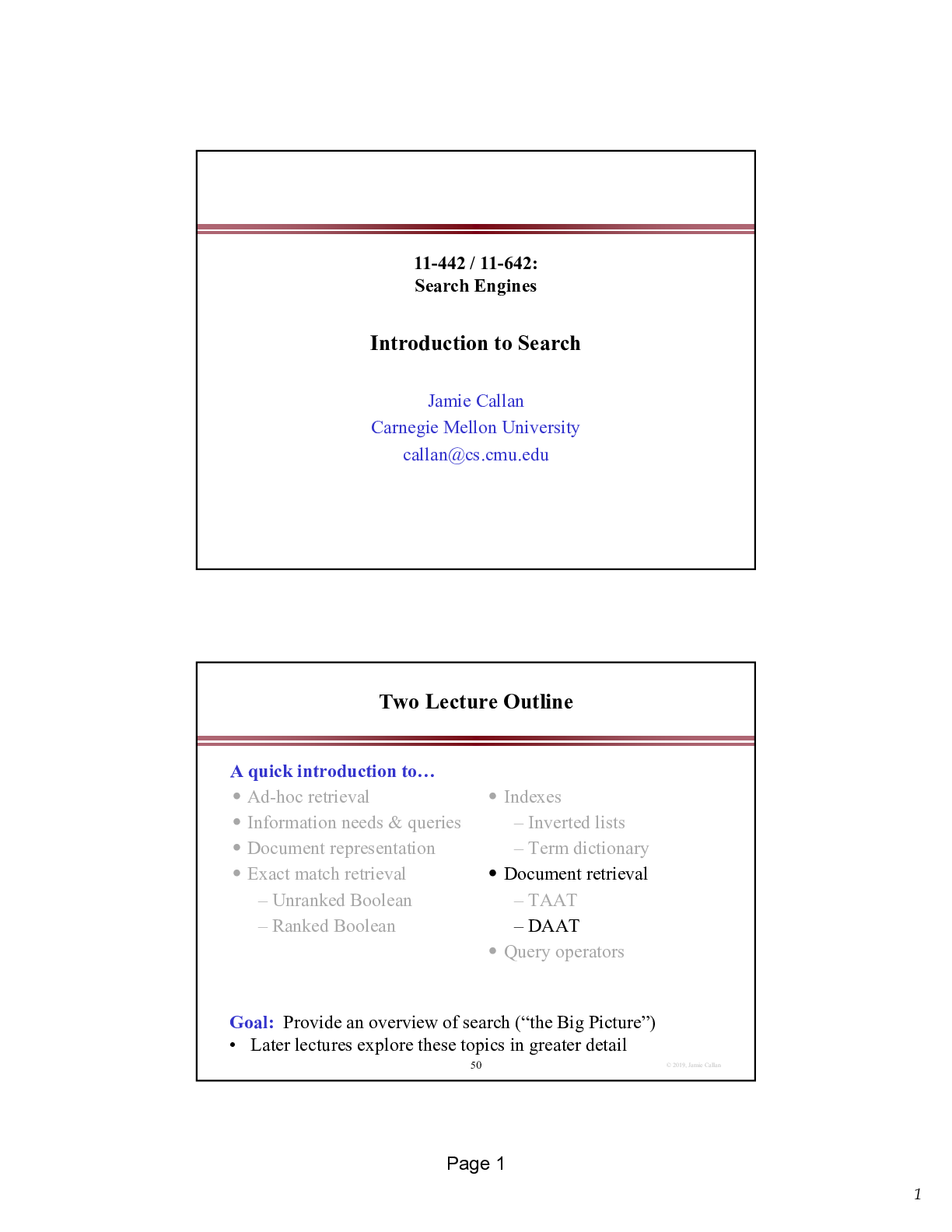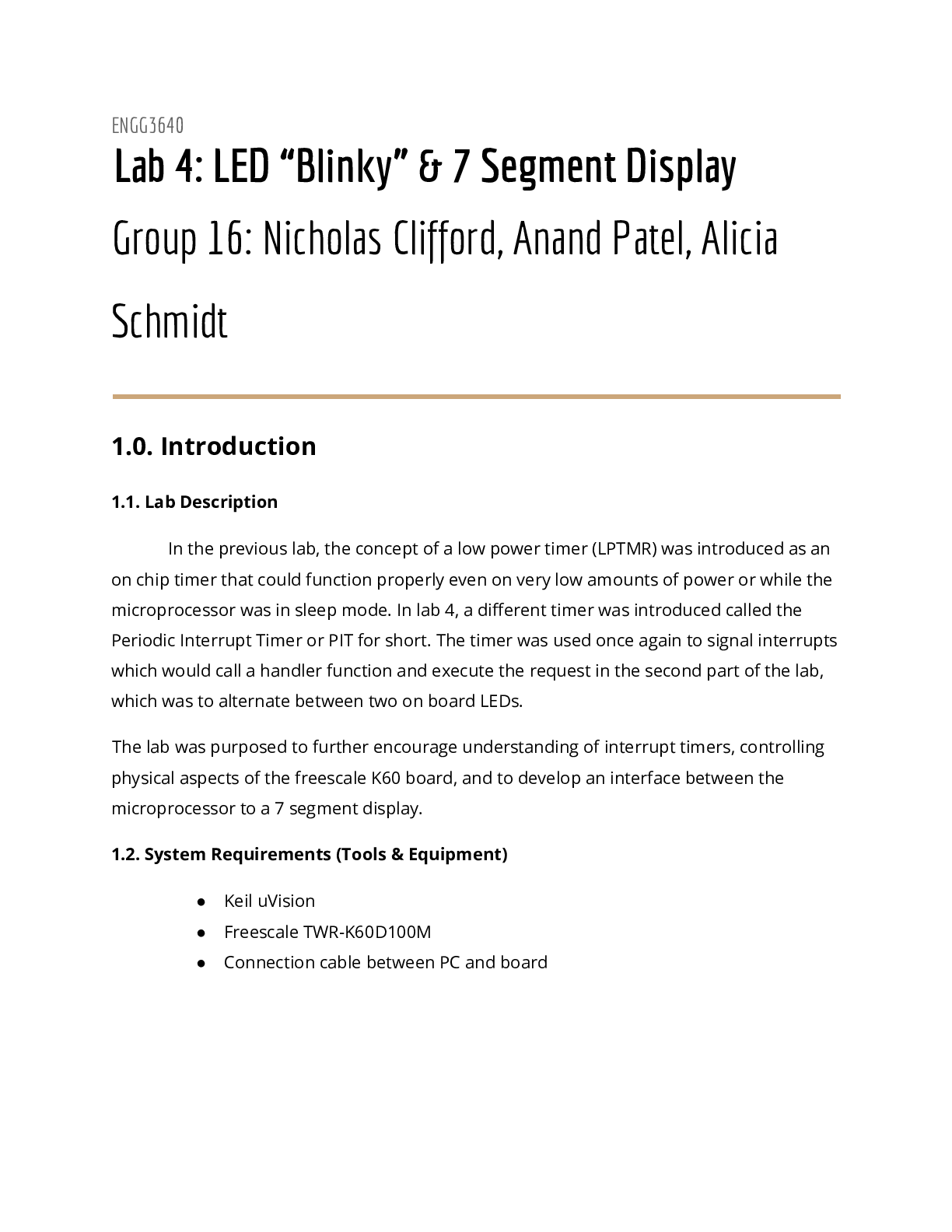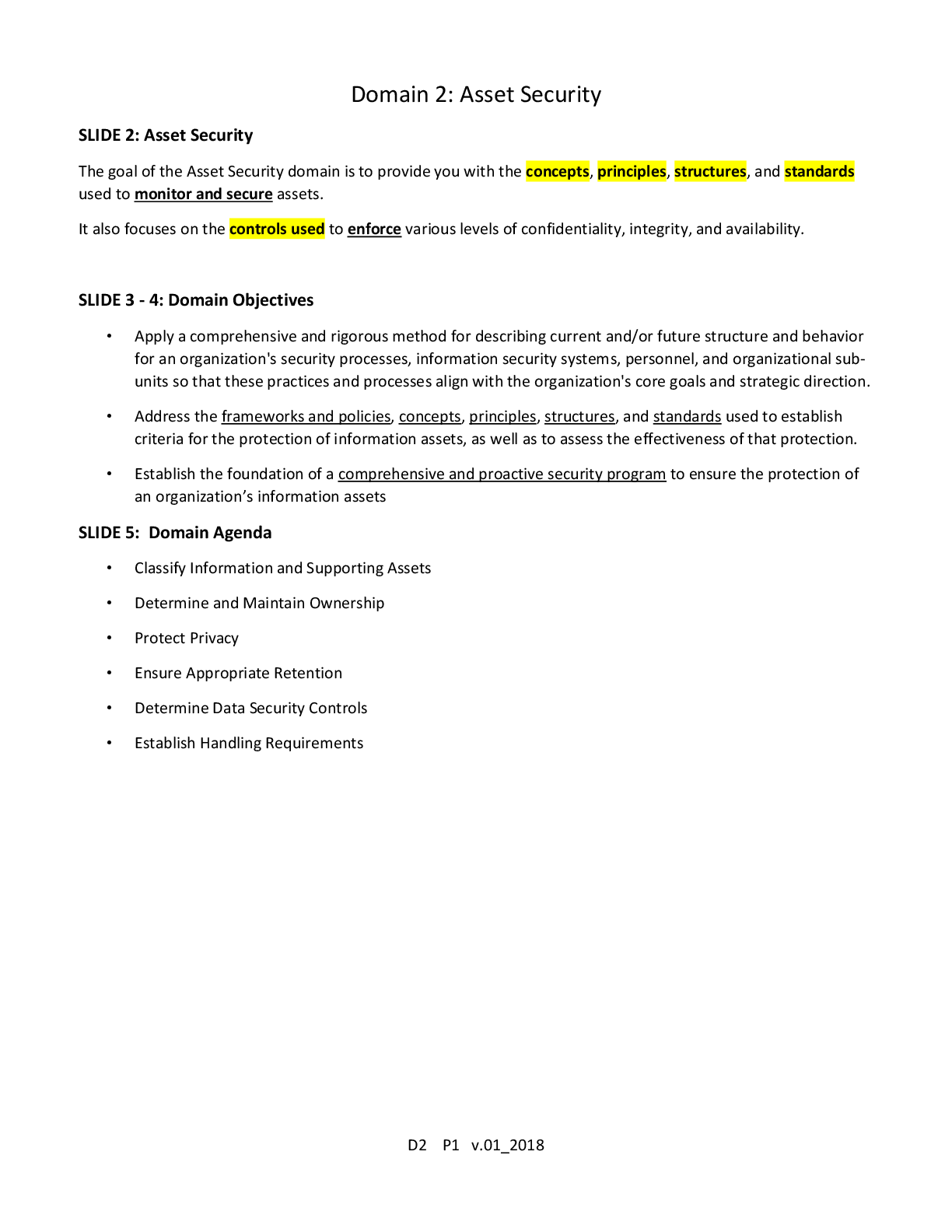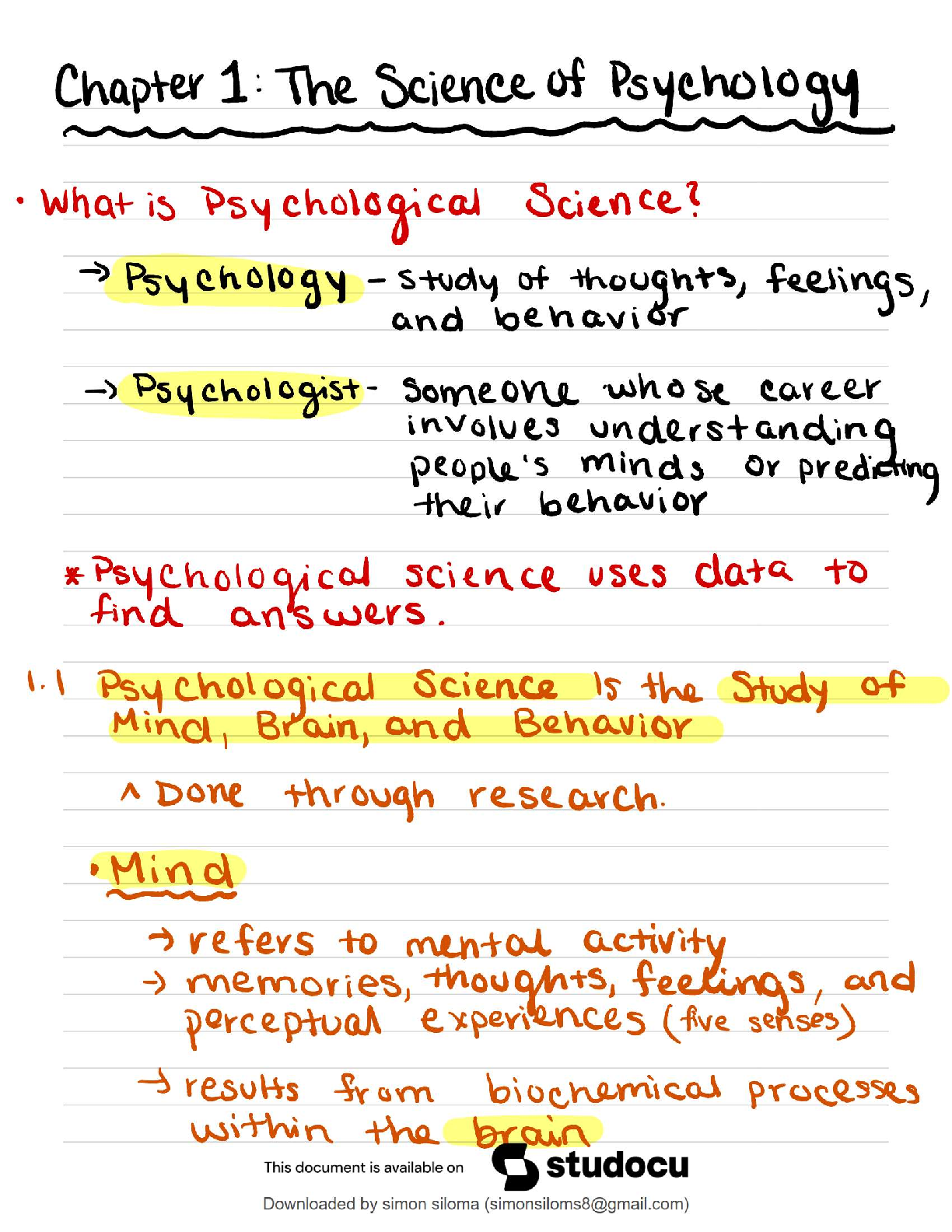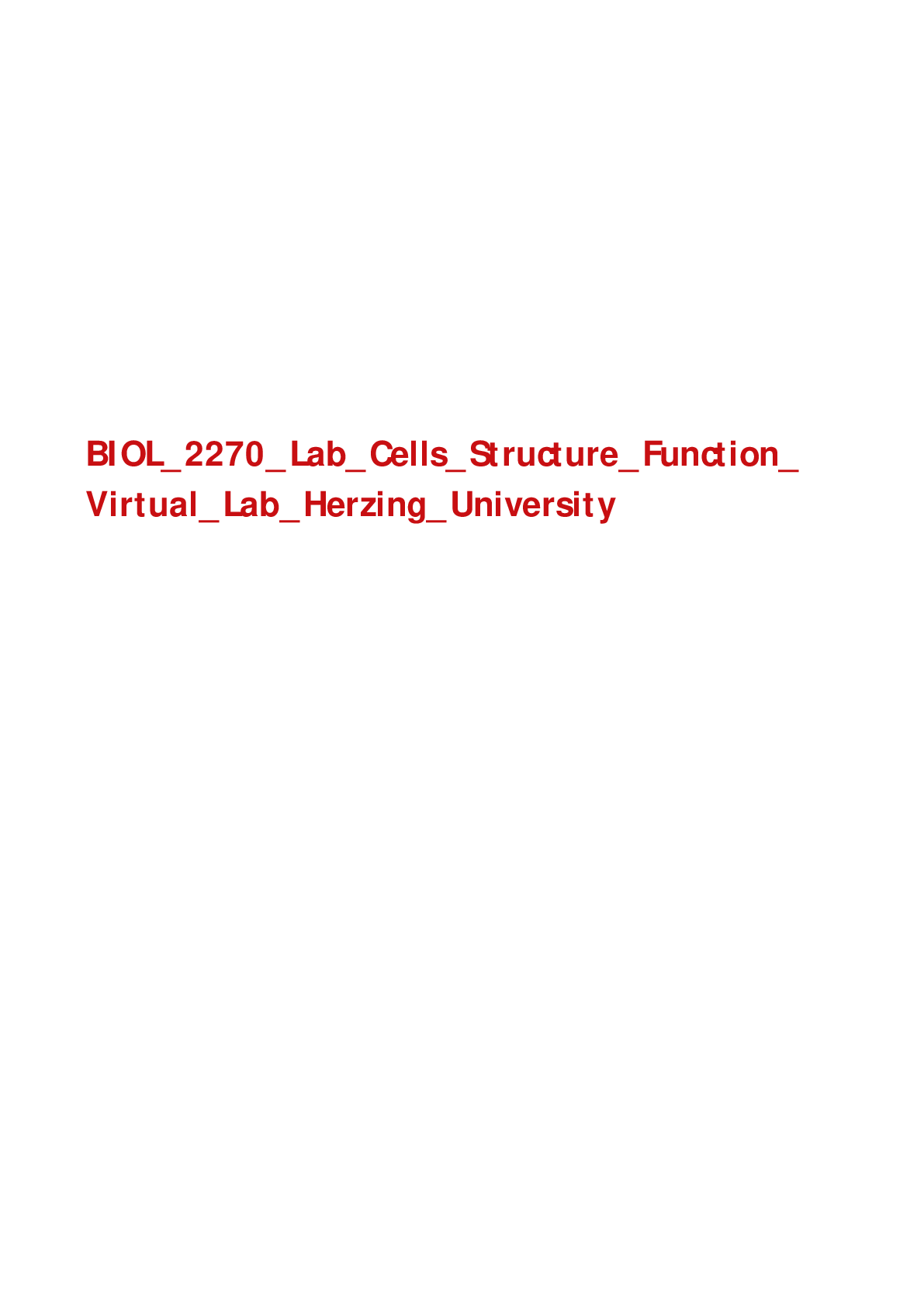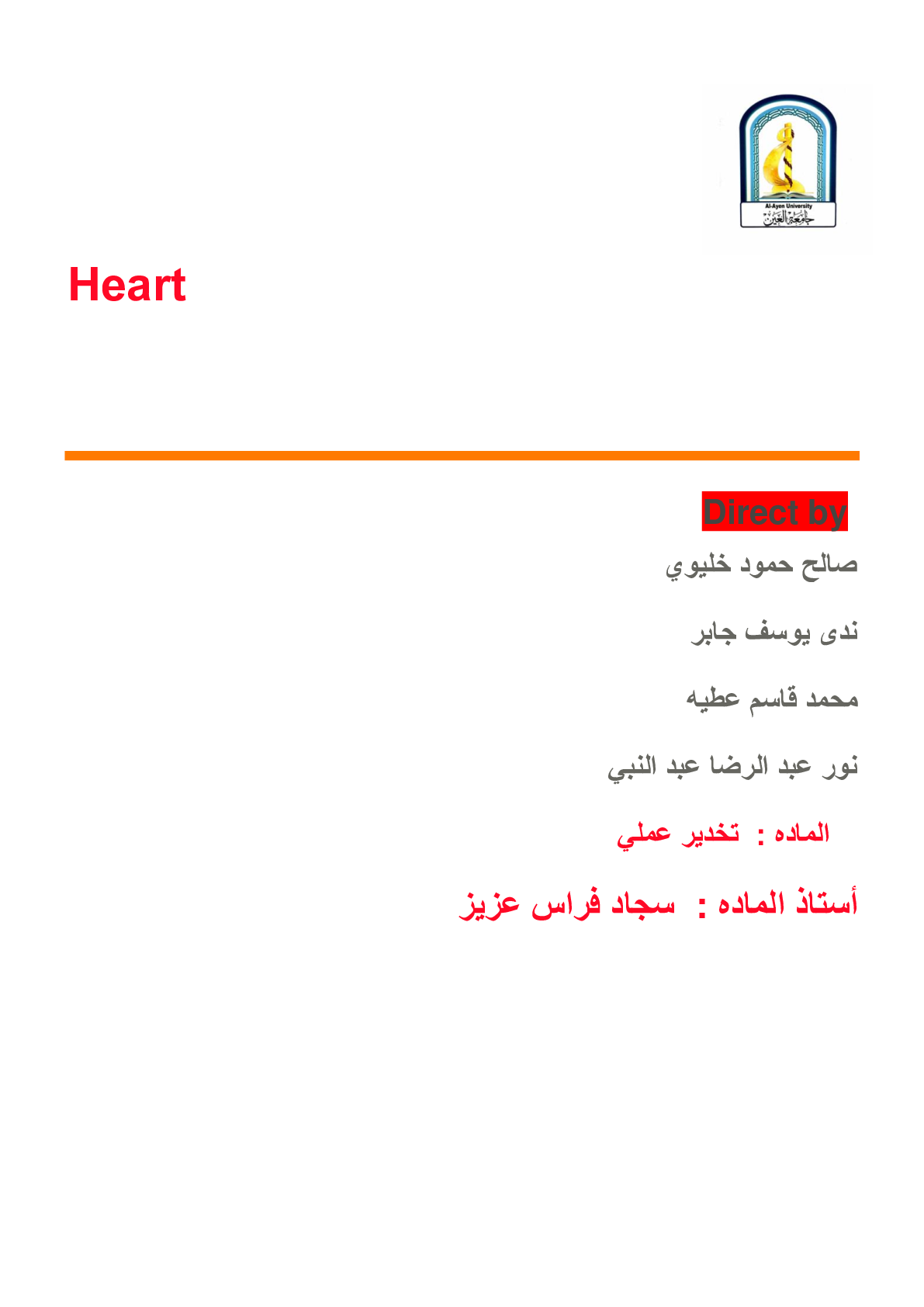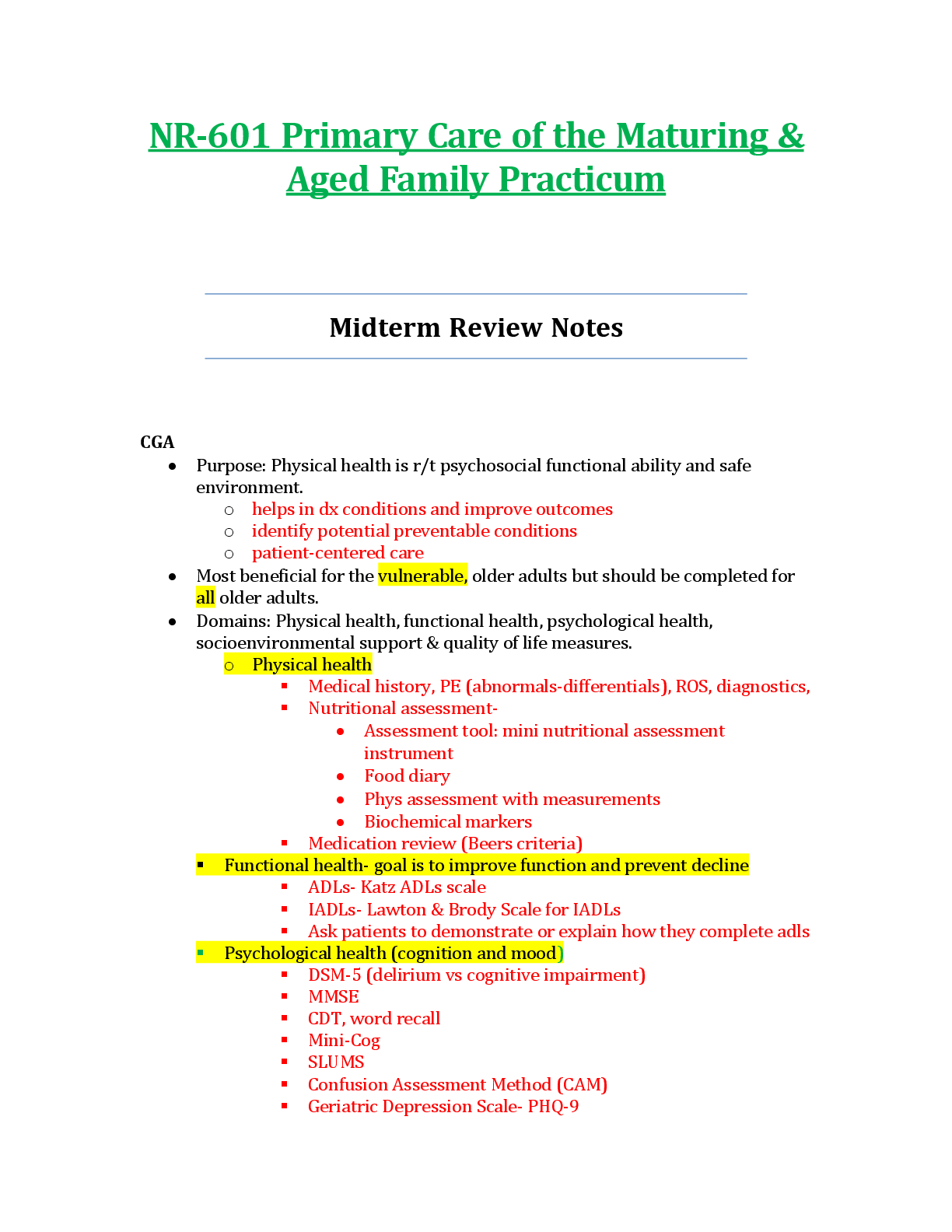Anthropology > Study Notes > Cultural Anthropology (ANT 302) Exam 2 Study Guide (All)
Cultural Anthropology (ANT 302) Exam 2 Study Guide
Document Content and Description Below
● Consanguineal: Individuals related by blood. The kin you are related to by descent ● Affinal: Relatives by marriage, whether of lineals (ex: son’s wife) or of collaterals (sister’s husband ... ) ● Fictive Kinship: This type of kinship would be the god parent, or the person who is really close to you that you may even call “aunt” or “uncle”, but are NOT biologically related to you or related to you through marriage. Family member by choice rather than blood or marriage. (ex: adoption) ● Historical Materialism: A methodological approach to the study of society, economics, and history that looks for the causes of development and changes in human society in the means by which humans produce the necessities of life. A theory of History which, along with other theories about societal, economic, and political structures, constitute Marxism. ● Marxism: For our purposes, a set of theories of society, economics, and politics. Its main goals are to critique capitalism and foment social change. Historical materialism is just one part of Marxist theory. ● Political Economy: Application of the theories and methods of Historical Materialism to the traditional concerns or subjects of Anthropology. Political Economists may emphasize how ideas and belief systems work towards power’s goals, how control over the means of production is a major influence on legand political systems, or how laws don’t benefit everyone equally. ● Ideology: Set of ideas that reflect class interest. Upper class typically subordinates the lower class into working hard for menial wages, this is due to the fact that the upper class owns the means of production and it is normalized. The lower class must find their own ideology. ● Class: Based on real property difference/symbolic proportional stratification. This can be measured by income, machines, home, land, business, capital, investments, symbolic forms of capital (cultural capital). It also includes their ability to support a family, it divides people into sets based on perceived social or economic status. Shows the relationship between people and modes of production. ● Materialism: Theory based on ethnography, objective conditions, assume that human needs (food/shelter) take priority over other needs, resources are a natural given, human relation between nature is to sustain life. (whats going in the stomach--objective) ● Idealism: More symbolic, mental perception, questions objective conditions in how they affect the way of like, subjective, human mind, mental needs (social, values), econ resources aren’t natural, they are culturally determined. (whats going in the mind--theoretical) :-) ● Clifford Geertz: Main advocate for interpretive anthropology. Idealist approach to society and was trained in Philosophy. Coined the term “Thicc Thick Description” ● Interpretive Anthropology: Emphasizes uniqueness and particularisms of each culture. Considered the task of describing and interpreting that which is meaningful to natives. ● Interpretivism: Approaches used to emphasize meaningful nature of people’s participation in both social and cultural life. Rules out natural science methods. Max Weber was a big advocate. - thick description ● Mode of Production: Distinguishes class, which is the base of society. Everything that goes into production are necessities of life, including the productive means (labor, capital, raw materials) and the relations to that production. ● Feudalism: Political and economic system based on the holding of all land. This society is based off subordination of the poorer classes to work the land. ● Capitalism: Economic system in which a country’s trade and industry are controlled by private owners for profit rather than by the state. ● Class Conflict: Source for social change, class struggle is the tension that exists in society due to competing socioeconomic interests and desires between people or different classes. ● Labor: Physical or mental exertion. Especially when difficult or exhausting production of goods, any work that modifies nature, any kind of work not necessarily to make something. ● Law of Value: Your true worth is determined by how much more you give in value than you take in payment based on Marxist theory.owning class(owns means of production) and Working class works for a salary. Labor creates value → proletariat create value when producing commodities. Under capitalism, the owner steals from the proletariat by paying them less than what they produce, according to Karl Marx ● False Consciousness: (especially in Marxist theory) A way of thinking that prevents a person from perceiving the true nature of their social or economic situation. ● Boasian Anthropology: Was founded by Franz Boas. Focused on how culture influenced the human species. Understanding human cultures as malleable and perpetuated (elongated) through social learning. Boas introduced the concept of cultural relativism ● American Historical School: It is another term we use for Boasian anthropology. ● Methodological Collectivism: Look at society through the lens of the whole ● Methodological Individualism: Look at society through the lens of the individual. Assumes that not everyone in a collective society will behave in the same manner (how social phenomena result from individual actions) ● Gender: Socially constructed, like race, it is attached to ideas of biology, and it varies across time and culture. It distincts masculinity and femininity. Third group may not be apart of all cultures. ● Sex: Biological. ● Intersex: Group of conditions involving a discrepancy between external and internal genitals. Originally called hermaphroditism, may be caused by a difference or deficiency in chromosomes ● Transgender: Third gender, not accepted in all societies. Individual whose gender identity contradicts their biological sex at birth and their gender identity that society as assigned to them may be at infancy. [Show More]
Last updated: 3 years ago
Preview 1 out of 23 pages
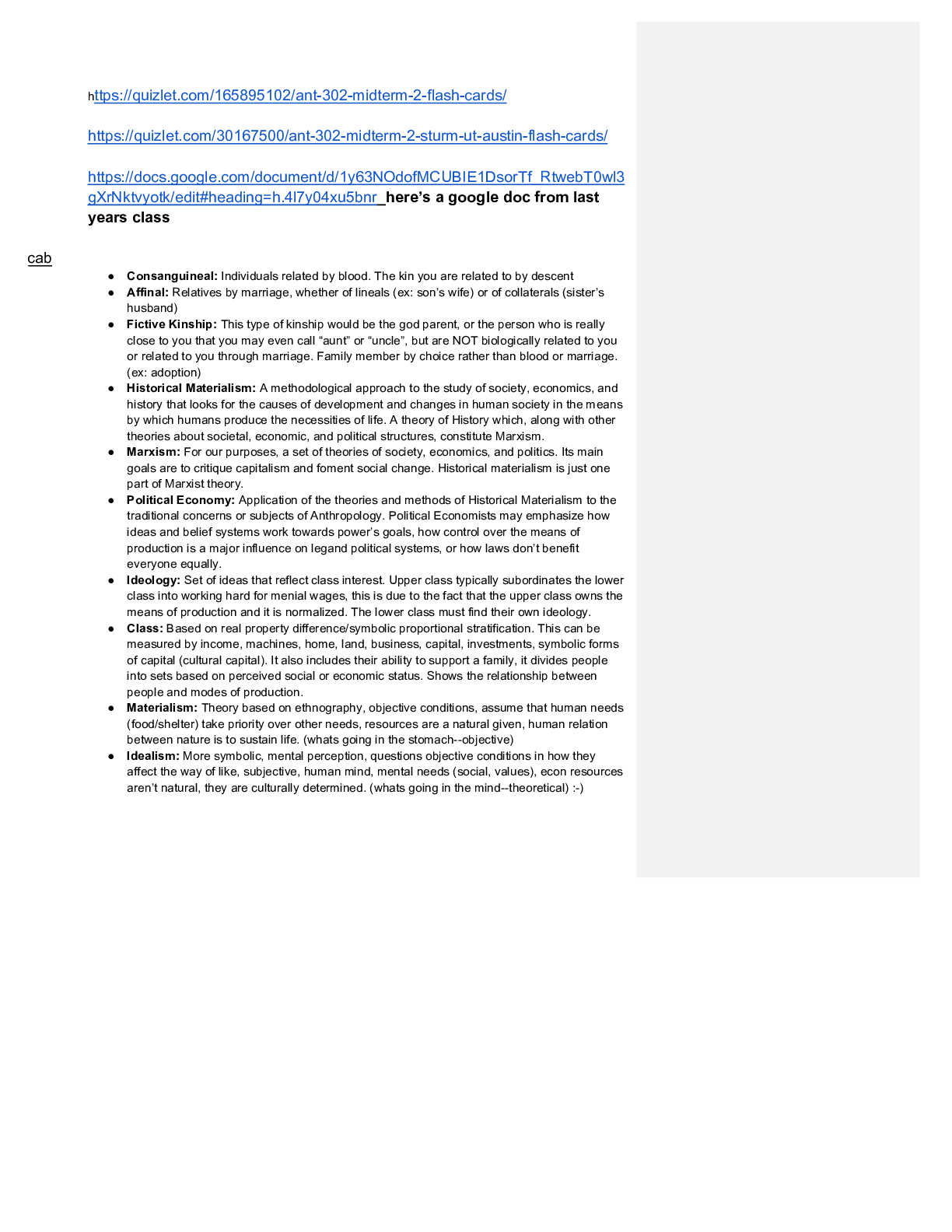
Buy this document to get the full access instantly
Instant Download Access after purchase
Buy NowInstant download
We Accept:

Reviews( 0 )
$8.00
Can't find what you want? Try our AI powered Search
Document information
Connected school, study & course
About the document
Uploaded On
Nov 08, 2022
Number of pages
23
Written in
All
Additional information
This document has been written for:
Uploaded
Nov 08, 2022
Downloads
0
Views
1709

.png)
